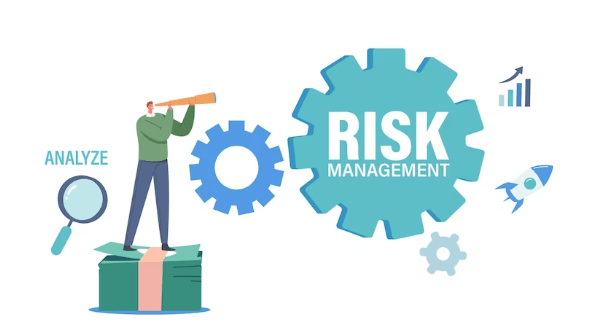In case you missed it see what’s in this section
Let's Talk
The Psychology of Trading in Betting: Understanding the Emotional Factors that Influence Trading Decisions
Get acquainted with the emotional factors that impact your trading decisions. Embark on a part to manage them. Get the best out of emotional trading.
Introduction

Trading, betting, and psychology are intrinsically bonded. These concepts have continued to grow together at a breakneck speed over the years. In this case, advanced technology and economics are the primary growth drivers. However, some market stakeholders, merchants, and bettors believed that we were rational individuals. This explains why they assumed that the trade marketing operations were meticulous.
Later on, some other people challenged the notion that all human beings are rational. They believe that it's flawed to say that we are rational every step of the way. There are circumstances in which we tend to be emotional or illogical. Trading and Punting is one of these conditions. We cannot rule out the role of these biases or emotional factors in our trading decisions. To this end, we will look at these emotional factors, such as the illusion of control, overconfidence, and many others. As a punter, you will also learn how to manage these emotions. In this way, you can minimize risks, earn more money and boost overall success.
Emotional and Cognitive Biases in Trading Decisions
Below are some emotional and cognitive biases in trading decisions;
Illusion of Control
It's the belief that you have solid control over the outcomes of your trading operations. In this case, merchants may inflate their abilities to influence trading movements. Note that illusion of control is different from overconfidence. The illusion of control usually drives overconfidence. Overconfidence leads to a bad risk management system.
Overconfidence
It's a tendency to believe that you have superior abilities and skills. In this case, you believe that all your predictions are accurate. This can lead to overtrading and inefficient risk management tactics.
Loss aversion
It occurs when you avoid losses instead of amassing gains. By this, we mean that potential losses get to you. The consequences of this behavior are threefold. First, you will develop a risk-averse mentality, which is bad for a merchant. Second, you will find it difficult to reduce losses. Finally, you won't be able to move on from your initial position. Or maybe you may take some time to move on.
Confirmation bias
By this, we mean that you research and interpret pieces of information that validate your pre-existing formulas. Merchants may discount contradictory details. This often leads to irrational and subjective trading decisions.
Tactics to Overcome Emotional Trading
It can be overwhelming to scale through cognitive and emotional factors in trading. However, we've some foolproof tricks up our sleeves that will help you to make more logical decisions.
Self-awareness techniques
The first step is to identify and come to terms with your emotions. Reflect on your attitudes or emotions. Recognize attitudinal patterns. Acknowledge the roles of your emotions in decision-making.
Risk management

A proactive risk management system helps merchants to guard against greed. You also feel less scared of trading outcomes. Establish stop-loss mechanisms. Make sure that you think outside the box. Don't stick to a single position. By doing so, you can guard against irrational decisions or loss-oriented decisions.
Mindfulness and meditation: Maintaining a calm trading psyche
Trading is a very competitive scene. It drives you to meet yourself and own up to your issues. This is how you become a better trader. If you find it difficult to own up, you certainly do not have a future in this field. This is where mindfulness and meditation come into play. They help you to get through the tumultuous times in trading.
Maintaining a calm trading psyche requires you to experience your thoughts from the brighter side. How do you achieve this?
Dear trader, please try to show up frequently and meticulously in the trading scene. The more you do so, the more your winning chances. By doing so, you start to think that it doesn't revolve around single merchandise. If you cannot work around this trade, you can always wait for the next trade. It becomes a fine process, and you become less disappointed or pressured.
As you show up, track your emotions. You may write how you feel during a particular trading stage in a notebook. The goal is to help you to figure out why you're experiencing such emotions. In this way, you won't let negative emotions take the front pew in your trading journey.
Let TheTrader guides the rest of your trading expedition!
Conclusion
Emotional factors impact a trader's judgment and portfolio performance. It's important that every merchant recognizes and learns to tame them. By overcoming emotions like overconfidence and loss aversion, you can make objective decisions. You also become self-aware, earn returns and nurture a growth mentality. Then you find out that you're on your way to achieving long-term success in the trading ecosystem.
Weather in Swindon
Listings





















